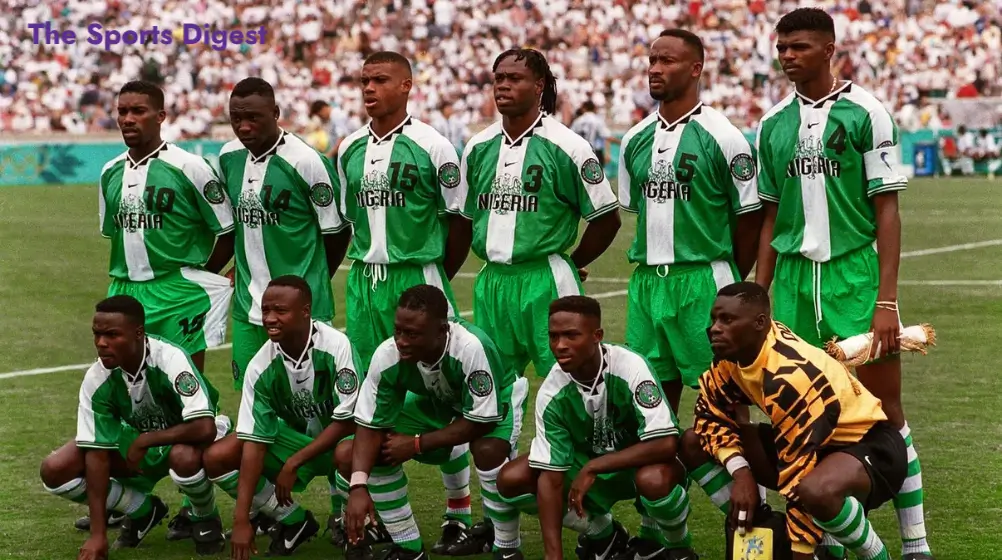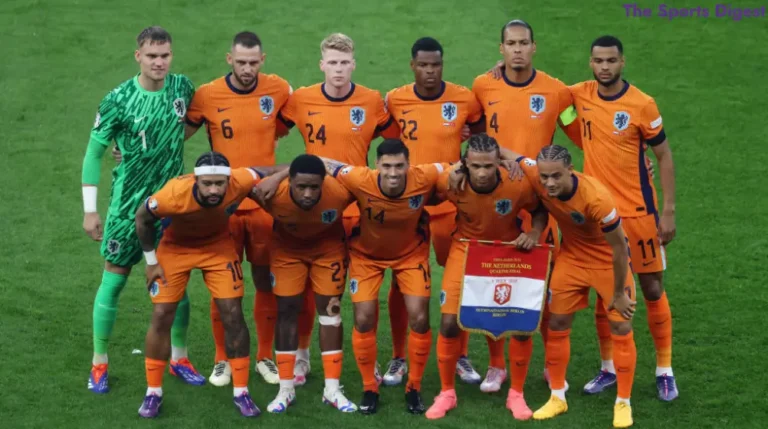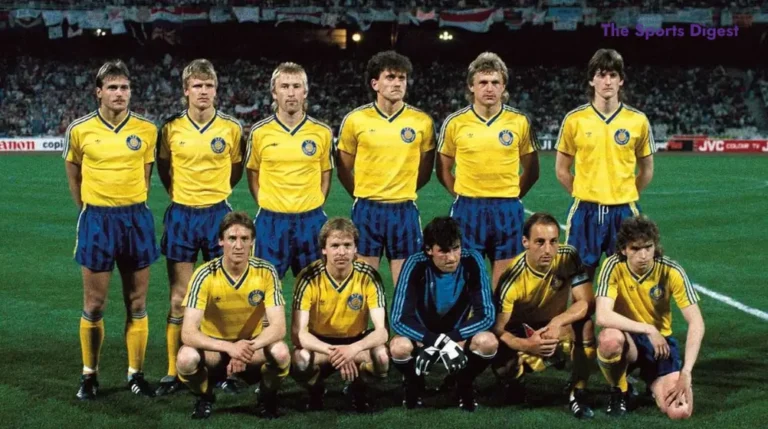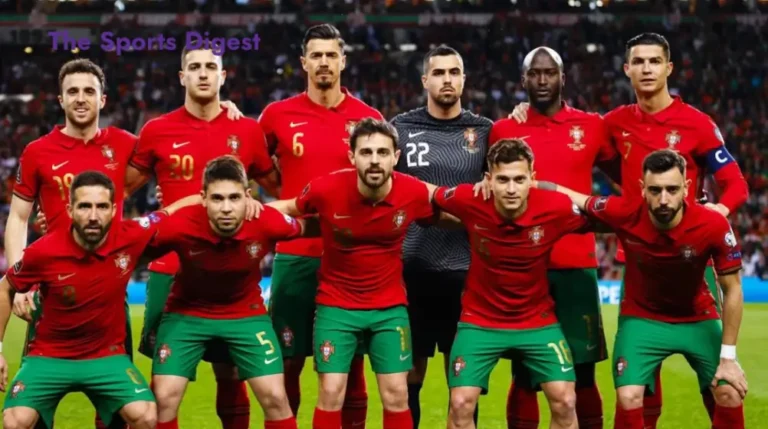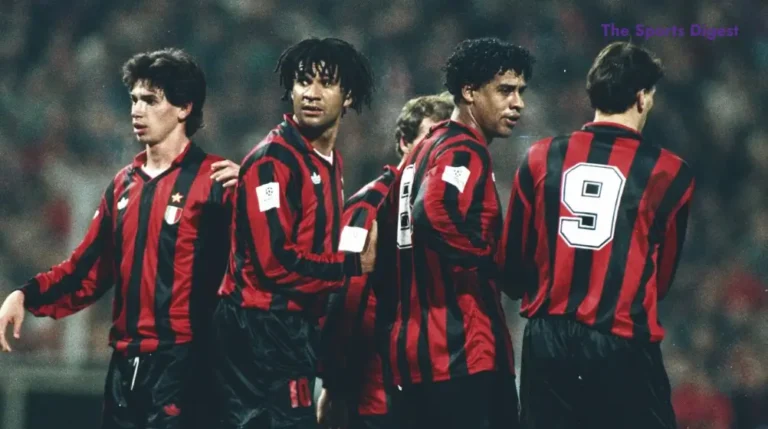Nigeria 1996 Olympic Gold
The 1996 Summer Olympics in Atlanta witnessed a historic moment for the Super Eagles, as they secured their first-ever Olympic gold medal in football. This tournament was packed with intense matches, surprises, and thrilling performances that made it one of the most memorable Olympic football tournaments. In this article, we will explore the general stages of the tournament, with a special focus on the remarkable journey of the Nigerian team to the gold medal.
Table of Contents
Overview of the 1996 Olympic Football Tournament
The 1996 Summer Olympics in Atlanta marked a significant milestone in Olympic football history. For the first time, the tournament included 16 teams, expanding the competition and adding a higher level of excitement. Some of the best footballing nations and rising stars participated, making it a showcase of young talent and seasoned professionals.
In this edition of the Olympics, the football competition was divided into groups, with each group consisting of four teams. The teams competed in a round-robin format, where the top two teams from each group advanced to the knockout stages. The competition was fierce, with countries like Brazil, Argentina, Portugal, and France all aiming for the top prize.
Group Stages and Early Competition
- Group A : Group A was one of the most competitive groups in the tournament. It included Super Eagles, Mexico, Portugal, and France. Nigeria, with its talented squad, stood out as one of the strongest teams in the group. During the group stages, Nigeria showcased its prowess, finishing at the top of the group and advancing to the knockout rounds.
- Group B : Group B also featured strong teams, including Brazil, which was considered one of the favorites to win the tournament. However, Brazil faced tough competition from teams like Ghana and Belgium, making the group stage a tightly contested affair.
- Group C : In Group C, Argentina and Spain were the major contenders. Argentina, in particular, demonstrated their strength in the group stages, with star players leading the way. Their impressive performances made them one of the teams to watch in the knockout rounds.
- Group D : Group D saw intense competition between Mexico and Nigerian team for the top spot. Nigeria’s dominance in the group stages earned them a place in the knockout rounds, setting the stage for their historic journey.
Nigeria’s Path to Glory
Having advanced past the group stages, the Super Eagles’ journey through the knockout rounds was a remarkable display of resilience, skill, and determination. The team defeated some of the best in the world, including Brazil and Argentina, on their way to the final, where they eventually clinched the gold medal. Let’s take a closer look at each stage of their remarkable run.
Quarterfinals: The Super Eagles Triumphs Over Mexico
On July 28, 1996, Nigeria faced Mexico in the quarterfinals at Legion Field in Birmingham. The match was a dominant display by Nigerians, who won 2-0. The first goal came from JJ Okocha in the 20th minute, followed by an additional goal from Celestine Babayaro in the 84th minute.
This victory showcased Nigeria’s defensive stability and attacking power, as they comfortably secured a spot in the semifinals.
In the semifinals: The Super Eagles team pulls off an amazing victory over Brazil.
On July 31, 1996, Nigeria faced Brazil in what would go down as one of the most iconic matches of the tournament. This thrilling encounter took place at Sanford Stadium in Athens, with both teams displaying extraordinary skill and determination. The match concluded in a dramatic 4-3 victory for Nigeria after extra time, thanks to the golden goal rule.
The match kicked off with an unexpected twist as Brazil’s Roberto Carlos scored an own goal in the 20th minute, giving Nigeria an early lead. However, Flávio Conceição quickly responded for Brazil, leveling the score with a goal in the 28th minute. With both teams desperate to secure the win, the match remained evenly poised.
As the game progressed, Nigeria’s Victor Ikpeba broke the deadlock again in the 78th minute, putting Nigeria back in front. But Brazil wasn’t ready to give up just yet. With tension mounting, Nwankwo Kanu sealed Nigeria’s comeback in the 90th minute, scoring another goal and pushing the game into extra time.
In extra time, the tension reached its peak. Just four minutes into the extra time, Nwankwo Kanu once again became the hero, scoring a golden goal in the 94th minute, which ended the match and secured Nigeria’s place in the final.
This unforgettable match demonstrated Nigeria’s resilience and fighting spirit, overcoming Brazil in dramatic fashion, and marked a pivotal moment in their journey to claim the Olympic gold medal.
This stunning victory over Brazil was a testament to Nigeria’s resilience and ability to compete at the highest level, even against the most formidable footballing nations.
Final: the Super Eagles Clinches Olympic Gold
On August 3, 1996, the Super Eagles faced Argentina in the final match, which took place at Sanford Stadium in Athens. The encounter was a thrilling one, ending with a 3-2 victory for the Nigerian side. Celestine Babayaro opened the scoring in the 28th minute, and Daniel Amokachi doubled their lead in the 74th minute. Emmanuel Amuneke sealed the win with a goal in the 90th minute. Argentina fought back with Claudio López scoring in the 3rd minute, and Hernán Crespo adding a penalty in the 50th minute.
The Super Eagles’ triumph in the final marked the country’s first-ever Olympic gold in football, making them the first African nation to secure the prestigious Olympic football gold medal. This historic victory was a landmark achievement for both Nigerian and African football as a whole.
Star Players of Nigeria’s 1996 Olympic Journey
While the Super Eagles’ success in the 1996 Olympics was a team effort, several players stood out and played pivotal roles in their gold medal-winning campaign. These players became household names and helped solidify the country’s place in football history.
Some of the key players who shone during the tournament include:
- JJ Okocha, who dazzled with his technical skill and vision, contributing both goals and assists throughout the tournament.
- Celestine Babayaro, whose solid defensive performances and goal-scoring ability helped Nigeria stay strong at the back while also contributing offensively.
- Nwankwo Kanu, who played a crucial role in the semifinal and final, scoring decisive goals and showcasing his ability to perform under pressure.
Lessons Learned from Nigeria’s Olympic Journey
Nigeria’s success in the 1996 Olympic football tournament was not just about the victories on the pitch; it was about the lessons learned along the way. The Super Eagles demonstrated the importance of teamwork, determination, and never giving up in the face of adversity.
Their journey serves as an inspiration to future generations of African football players, showing that with hard work and unity, African teams can compete with and defeat the world’s top footballing nations. The 1996 Olympic victory also proved that the country has the potential to consistently compete at the highest levels of international football.
The Lasting Impact of Nigeria’s Gold Medal
The Super Eagles’ Olympic football gold medal in 1996 remains one of the most significant achievements in the country’s sporting history. It was not only a monumental achievement for Nigerian football but also a major milestone for African football as a whole. The victory brought global recognition to the sport in the country and paved the way for greater opportunities for African players on the world stage.
The 1996 Olympic gold medal is still celebrated by Nigerians and African football fans, and it continues to inspire future generations of footballers to dream big and aim for success. The Super Eagles’ victory proved that African teams are more than capable of winning the world’s biggest prizes.
Conclusion: A Historic Achievement for Nigeria and Africa
The Super Eagles‘ journey to winning the gold medal at the 1996 Summer Olympics was a historic and unforgettable achievement. It was a testament to the strength, skill, and determination of the Nigerian team, who overcame some of the best footballing nations to clinch the ultimate prize. The victory not only made them the first African nation to win Olympic gold in football but also put African football firmly on the map as a competitive force in global football.
The legacy of this victory continues to inspire millions of people, particularly in Nigeria and Africa, and will always be remembered as one of the greatest moments in Olympic football history.
Have you ever read an article like this?
There are no reviews yet. Be the first one to write one.
